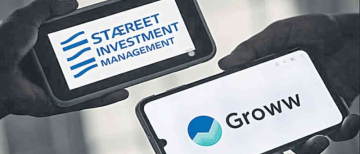At just 27 years old, Shayne Coplan has vaulted into the spotlight—not only as a tech founder, but as the world’s youngest self-made billionaire, according to the Bloomberg Billionaires Index. His claim to fame: Polymarket, the world’s largest prediction market, which recently secured a game-changing investment from the New York Stock Exchange’s parent company, Intercontinental Exchange Inc (ICE).

The Big Break: ICE’s $2 Billion Bet
In October 2025, it was publicly revealed that Intercontinental Exchange Inc., the parent of the New York Stock Exchange, would invest $2 billion in Polymarket. That capital infusion values the platform at $9 billion post-money, making Coplan one of the youngest billionaires ever.
Coplan broke the news via social media, reflecting on the disruptive nature of his journey:
“Going from a write-off to creating a category … the Polymarket origin story is funny because it’s a rare case of the dream being identical to how things played out.”
He described how, at the onset of the pandemic, he felt he had “nothing to lose”—“21, running out of money, 2.5 years since I dropped out and nothing to show for it.” Yet he believed the time was ripe to build a marketplace centered on truth, prediction, and collective intelligence.
Before this headline deal, two unannounced rounds had already played a key role:
-
Founder Fund led a $150 million round, valuing Polymarket at $1.2 billion.
-
Before that, Blockchain Capital backed a $55 million round, valuing the platform at $350 million.
These rounds set the stage for ICE’s massive investment and Coplan’s entry into the billionaire club.
From Bathroom Office to Billion-Dollar Ambition
Coplan launched Polymarket in June 2020, operating initially from his Lower East Side apartment—notably writing code from his bathroom. He later posted, “2020, running out of money, solo founder, HQ in my makeshift bathroom office… little did I know Polymarket was going to change the world.”
Before that, Coplan had dropped out of New York University, leaving behind a conventional path in favour of pursuing crypto and prediction markets. He has admitted that he once catalogued his possessions in his rental apartment to see what he could sell just to pay rent.
In 2019, he discovered economist Robin Hanson’s writings on prediction markets and began exploring how they could be leveraged in modern contexts. When the COVID-19 pandemic triggered global lockdowns, Coplan seized the moment: with people isolated at home, he built an app that allowed users to bet on real-world outcomes—essentially turning events into markets.
Markets on everything.
We’re proud to announce that $ICE, the owner of @NYSE and the largest exchange company in the world, is making a strategic investment of $2 billion into Polymarket, valuing us at $9 billion post-money.
Our partnership with ICE marks a major step in… pic.twitter.com/oShaglRx9p— Shayne Coplan 🦅 (@shayne_coplan) October 7, 2025
The Platform: How Polymarket Works
Polymarket is a crypto-based prediction market built on blockchain (using the Polygon / Ethereum infrastructure). Users can deposit USDC, a stablecoin pegged to the U.S. dollar, to trade “shares” in propositions or events. If your prediction proves correct, each share is redeemed for $1; if incorrect, it becomes worthless.
For example: you may bet “yes” on some event at 37 cents. If that outcome happens, your share becomes worth $1, so you net 63 cents in profit. But before the event resolves, you can sell your stake if the market price rises, thus securing profits early. The system matches users with opposing bets in a peer-to-peer fashion.
Recent markets on the platform have spanned everything from “2025 World Series Champion” to “when the U.S. government shutdown will end.” Coplan himself calls the premise simple: “Markets are the best way to source truth.”
Legal Turbulence: FBI Raid, CFTC, and Political Overlap
- The FBI Raid and Allegations
Four years after launching, Coplan’s New York apartment was raided by the FBI in November 2024. This was reportedly tied to concerns over illegal trading and unregistered operations, particularly tied to a controversial wager favoring Donald Trump during the 2024 U.S. presidential election.
Federal agents seized Coplan’s phone and other electronics. Coplan was not arrested. He later posted lightheartedly, “New phone, who dis?” The company characterized the raid as “obvious political retribution,” alleging it was an attempt by the outgoing administration to target platforms seen as favorable to their opponents.
- Regulatory Challenges and Settlement
Polymarket had already tangled with regulators earlier. In 2022, the Commodity Futures Trading Commission (CFTC) fined the company $1.4 million, claiming it had run what amounted to an unregistered derivatives market. As part of that settlement, Polymarket agreed to block U.S. users from accessing the service.
Yet despite the ban, many U.S.-based participants reportedly used VPNs to bypass the access restrictions.
In July 2025, both the Justice Department and CFTC announced they would not file charges, effectively closing investigations into Polymarket. Polymarket later acquired QCEX, a CFTC-licensed derivatives exchange and clearinghouse, in a $112 million deal, positioning it to legally re-enter the U.S. market. The move enabled Polymarket to resume U.S. services beginning in September 2025.
Meanwhile, critics have flagged potential wash trading and manipulation in Polymarket’s volume data. Independent investigations (e.g., by Chaos Labs and Inca Digital) suggested that a significant portion of the 2024 presidential market’s trading activity might have been artificially created.
Against all odds. https://t.co/JQya7fMbl4— Shayne Coplan 🦅 (@shayne_coplan) October 7, 2025
The Trump Tie and Major Investors
- Trump Jr., 1789 Capital, and Advisory Role
One of the more striking dimensions of Coplan’s story is the link to Donald Trump Jr. The investment firm 1789 Capital, which lists Trump Jr. as a Partner, invested in Polymarket prior to the 2024 election. Following that deal, Trump Jr. joined Polymarket as an advisor. This move added another layer of intrigue and political connection to the platform’s story.
- Other Key Backers
Polymarket’s investor roster features prominent names:
-
Founders Fund (Peter Thiel)
-
Vitalik Buterin (co-founder of Ethereum)
-
Blockchain Capital
-
1789 Capital
Before the ICE deal, Polymarket had raised ≈ $255 million across earlier investments, per reporting.
With ICE now distributing Polymarket data to financial markets and collaborating on tokenization projects, Coplan has effectively linked prediction markets to mainstream finance. ICE also sees the deal as a way to extend into sentiment data and decentralized event markets.
Why ICE and the NYSE Just Crowned a 27-Year-Old Billionaire
The 2025 investment from ICE wasn’t just about money—it was about cultural and financial recognition of a new frontier. With $2 billion injected, the valuation target edged toward $9 billion post-investment (though some reports place the pre-money value at $8 billion). This influx cemented Coplan’s status as the youngest self-made billionaire in that index.
Beyond the money, the deal gives ICE a new avenue to channel Polymarket’s event-driven data—effectively opening up market sentiment as a tradable product. Together, the companies plan tokenization initiatives, potentially turning real-world assets into on-chain tokens.
In essence, ICE’s embrace signaled that prediction markets—once on the fringe—are now being folded into financial infrastructure.
Polymarket itself has taken advantage of Gen Z’s appetite for speculative platforms. Analysts say younger traders are naturally drawn to marketplaces where outcomes and bets blur lines with traditional predictions. Economist Aleksandar Tomic called prediction markets like these “another place to make a bet.”
Success, Momentum & Challenges
- Election Predictions & Big Bets
Polymarket’s rise coincided with the 2024 U.S. presidential election, during which it processed over $3.2–3.7 billion in wager volume—primarily from predictions on who would succeed. Its markets predicted that Biden would drop out and that Trump would prevail—the platform’s perceived accuracy spurred major attention.
One French trader reportedly made ≈ $85 million from a contrarian bet that Trump would return to the presidency.
- Turbulent Start to 2025
Despite the headline success, 2025 began with hiccups: Polymarket’s trading volumes dipped, and regulatory uncertainty remained a specter. At times, analysts questioned whether the hype would sustain. But the ICE investment and regulatory clearances have restored momentum.
Coplan continues to reflect on his journey. In one post he repeated, “At the onset of the pandemic … I knew we were entering an era where ways to find truth would matter more than ever,” noting that Polymarket could be a “critical role” in that shift. On lighter notes, he mentioned planning to watch football and beta-test the new Polymarket U.S. app on the coming Sunday.
Final Thoughts: A Risky All-In Bet on Prediction as Infrastructure
From bathroom coding sessions to billionaire status, Shayne Coplan’s trajectory is equal parts audacity and timing. He harnessed ideation from economists like Robin Hanson, built a speculative engine in a volatile regulatory environment, and drew in powerful political and financial backers along the way.
Polymarket’s journey mirrors a broader tension in crypto and fintech: how to balance innovation, regulation, legitimacy, and political optics. The company’s past confrontations with the FBI and the CFTC underscore how fragile the path can be. But with ICE as a partner and QCEX in its arsenal, Polymarket seems poised to carve a niche in the U.S. financial ecosystem.
Will prediction markets become a mainstream tool for forecasting and financial insight—or remain controversial margins? Either way, Coplan’s gamble stands as one of the boldest in recent tech history.
With inputs from agencies
Image Source: Multiple agencies
© Copyright 2025. All Rights Reserved. Powered by Vygr Media.























